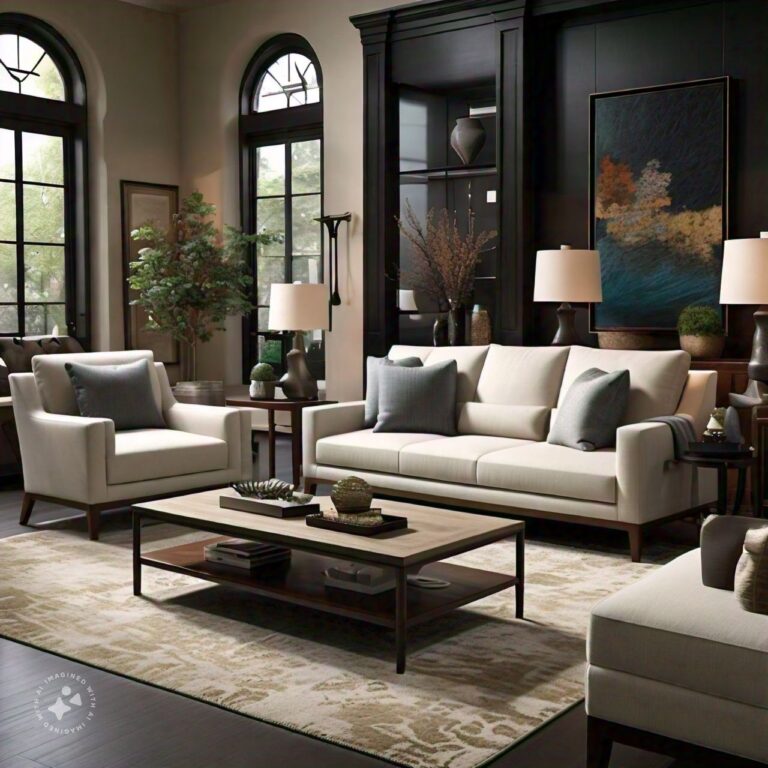
Differences Between Pottery Barn and Wayfair
A Comparison of Home Furnishing Giants
When it comes to home furnishing and décor, Pottery Barn and Wayfair are two popular destinations for homeowners and interior design enthusiasts. Both companies offer a vast range of products designed to enhance the aesthetic and functionality of any living space. However, Pottery Barn and Wayfair differ significantly in terms of their product offerings, shopping experience, pricing, and overall brand identity. While Pottery Barn is known for its traditional, high-quality, and often upscale furniture, Wayfair is an online marketplace that offers a diverse selection of home furnishings at various price points, catering to a wide audience.
Both Pottery Barn and Wayfair aim to make home furnishing accessible, but their approach to design, price, and customer experience sets them apart. Pottery Barn focuses on creating a cohesive, stylish shopping experience with a strong emphasis on craftsmanship and curated collections. Wayfair, on the other hand, prides itself on offering a wide range of styles, from contemporary to traditional, with a focus on convenience, affordability, and variety. Understanding the differences between these two giants can help consumers make more informed decisions when decorating their homes.
Pottery Barn Overview
What is Pottery Barn?
Pottery Barn is a leading home furnishing retailer known for its timeless, elegant, and high-quality furniture and décor. Founded in 1949 in New York City, Pottery Barn quickly established itself as a trusted source for well-crafted, stylish furniture and home goods. The brand is now part of Williams-Sonoma, a company that owns several other high-end home brands, including West Elm and Williams-Sonoma Home. Pottery Barn focuses on providing premium products that range from furniture and bedding to lighting and home décor accessories.
Product Range and Style
Pottery Barn is renowned for its classic and traditional designs, often blending rustic and modern elements to create a warm, inviting aesthetic. The company offers a wide array of home furnishing products, including:
- Furniture: Pottery Barn is known for its high-quality furniture pieces, such as sofas, chairs, tables, beds, and storage solutions. The brand emphasizes craftsmanship and durability, with many items made from solid wood and other premium materials.
- Bedding and Textiles: Pottery Barn’s bedding collections feature luxurious fabrics, including organic cotton, linen, and velvet, available in a variety of styles and colors. They also offer coordinated quilts, comforters, and decorative pillows.
- Lighting: The store offers a selection of chandeliers, table lamps, floor lamps, and pendant lights, all designed to complement the brand’s furniture and home décor items.
- Home Décor: Pottery Barn offers a range of decorative accessories, including mirrors, rugs, vases, and wall art. These items often feature classic designs that can seamlessly integrate into both traditional and contemporary spaces.
- Outdoor Furniture: In addition to indoor furnishings, Pottery Barn has an extensive collection of outdoor furniture, designed to bring comfort and style to patios, decks, and gardens.
Pottery Barn is also known for its commitment to sustainability, with a focus on sourcing environmentally friendly materials, including certified organic cotton and reclaimed wood. This focus on sustainability extends to its manufacturing processes, aiming to reduce environmental impact while delivering high-quality products.
Shopping Experience and Services
Pottery Barn provides a high-touch shopping experience, with brick-and-mortar stores that offer personalized customer service. Shoppers can visit physical stores to see and feel the products in person, or they can shop online through the Pottery Barn website, which features detailed product descriptions, high-quality images, and customer reviews.
Pottery Barn also offers complimentary design services, where customers can work with professional interior designers to create customized room layouts and décor plans. These services are available both in-store and online, allowing customers to get personalized advice and guidance on their home furnishing projects. Additionally, Pottery Barn frequently runs seasonal sales and offers financing options to make its high-quality furniture more accessible to a broader audience.
Wayfair Overview
What is Wayfair?
Wayfair is an online retailer that offers one of the largest selections of home goods and furnishings in the world. Founded in 2002 by Niraj Shah and Steve Conine, Wayfair operates as a digital-only marketplace, connecting customers with products from thousands of suppliers. With over 14 million items across a wide range of categories, Wayfair provides consumers with access to an extensive variety of furniture, décor, lighting, kitchenware, and outdoor products at various price points. Wayfair’s mission is to make home furnishings accessible to everyone, offering products that cater to different styles, budgets, and preferences.
Product Range and Style
Wayfair’s product selection is vast, covering a wide range of styles and categories. Unlike Pottery Barn, which focuses on a specific aesthetic, Wayfair offers everything from contemporary and modern designs to traditional, rustic, and industrial styles. Wayfair’s product categories include:
- Furniture: Wayfair offers a wide variety of furniture for every room in the house, including living room furniture, bedroom sets, dining tables, and office furniture. The selection ranges from budget-friendly options to higher-end pieces.
- Décor and Accessories: From wall art and mirrors to rugs, curtains, and throw pillows, Wayfair provides a broad selection of home décor items that fit different design preferences.
- Lighting: Wayfair’s lighting selection includes chandeliers, pendant lights, table lamps, and outdoor lighting, catering to various tastes and budgets.
- Kitchenware and Appliances: Wayfair also offers kitchen appliances, cookware, utensils, and dining essentials, making it a one-stop shop for all home needs.
- Outdoor Furniture: The retailer has an extensive outdoor furniture section, offering everything from patio sets and grills to garden décor and outdoor rugs.
Wayfair’s product range is made possible by its marketplace model, which allows the company to offer items from numerous third-party suppliers. This means that Wayfair does not manufacture its own products, but instead acts as a platform for a wide variety of brands, each with different price points, quality levels, and styles.
Shopping Experience and Services
As a purely online retailer, Wayfair provides a seamless and convenient digital shopping experience. Its website is user-friendly, featuring detailed filters that allow customers to search for products by style, material, price, color, and more. The site also includes customer reviews, which help shoppers make informed decisions before purchasing.
Wayfair’s key advantage lies in its extensive product offerings and fast shipping options. The company offers free shipping on orders over a certain amount and provides multiple delivery options, including same-day delivery in some areas. Wayfair’s Wayfair Professional program is also available for interior designers, contractors, and other professionals, offering exclusive discounts and services tailored to large-scale projects.
Additionally, Wayfair has embraced technology to improve the shopping experience, offering features like augmented reality (AR), which allows customers to visualize how furniture and décor items will look in their homes before making a purchase.
Differences Between Pottery Barn and Wayfair
- Business Model:
- Pottery Barn: Operates both physical stores and an online platform, providing a high-touch, personalized shopping experience.
- Wayfair: A digital-only marketplace with no physical stores, focusing entirely on online sales.
- Product Offering:
- Pottery Barn: Specializes in high-quality, classic furniture and décor with a cohesive design aesthetic.
- Wayfair: Offers a vast selection of home goods in various styles, from budget-friendly to higher-end items.
- Aesthetic Focus:
- Pottery Barn: Known for its traditional, rustic, and modern farmhouse styles.
- Wayfair: Provides a wide range of styles, including contemporary, industrial, traditional, and more.
- Private Labels:
- Pottery Barn: Features its own in-house collections, such as Pottery Barn Kids and Pottery Barn Teen, which maintain consistent quality and design.
- Wayfair: Acts as a marketplace for third-party brands, with products varying widely in terms of quality and price.
- Pricing:
- Pottery Barn: Generally positioned in the higher-end market, with premium pricing for its well-crafted products.
- Wayfair: Offers a broad range of price points, from budget-friendly items to mid-range products.
- Customization Options:
- Pottery Barn: Allows for customization of certain furniture pieces, such as selecting fabrics, colors, and finishes.
- Wayfair: Offers fewer customization options, with most items sold as-is from third-party suppliers.
- Customer Service:
- Pottery Barn: Provides in-store assistance and design services, offering a more hands-on approach to customer service.
- Wayfair: Relies heavily on online support, including live chat, email, and phone services.
- Shipping and Delivery:
- Pottery Barn: Offers white-glove delivery for larger furniture items, ensuring professional assembly and setup.
- Wayfair: Provides standard shipping options, with some items eligible for free shipping; however, assembly is typically not included.
- Return Policy:
- Pottery Barn: Typically has a 30-day return policy, with some limitations on customized or special-order items.
- Wayfair: Offers a 30-day return policy on most items, but return shipping fees may apply.
- Sustainability Focus:
- Pottery Barn: Prioritizes sustainable sourcing and environmentally friendly materials, including organic cotton and reclaimed wood.
- Wayfair: Does not have as strong a focus on sustainability, given its marketplace model and the wide variety of suppliers.
Conclusion
Pottery Barn and Wayfair are both major players in the home furnishing industry, but they cater to different markets and offer distinct shopping experiences. Pottery Barn emphasizes quality, craftsmanship, and a cohesive design aesthetic with a focus on traditional and timeless pieces. Its commitment to sustainability and personalized customer service makes it a favorite among consumers looking for high-end, well-made furniture and décor. On the other hand, Wayfair provides unmatched variety, offering a vast selection of products across all styles and price ranges, making it a go-to destination for budget-conscious shoppers or those looking for specific items that fit their unique tastes.
Choosing between Pottery Barn and Wayfair comes down to individual needs, style preferences, and budget considerations. For those seeking premium, durable furniture with a traditional design and in-store service, Pottery Barn is an excellent option. For shoppers looking for affordability, convenience, and a broader range of choices, Wayfair offers the flexibility to find products that fit any style or budget. Ultimately, both retailers provide valuable options for home furnishing, depending on what shoppers prioritize in terms of design, price, and customer experience.
FAQs
Related Topics
- All
- Animals
- Diseases
- Health
- Money
- Politics
© 2024 OnYelp.com. All rights reserved. Terms and Conditions | Contact Us | About us





